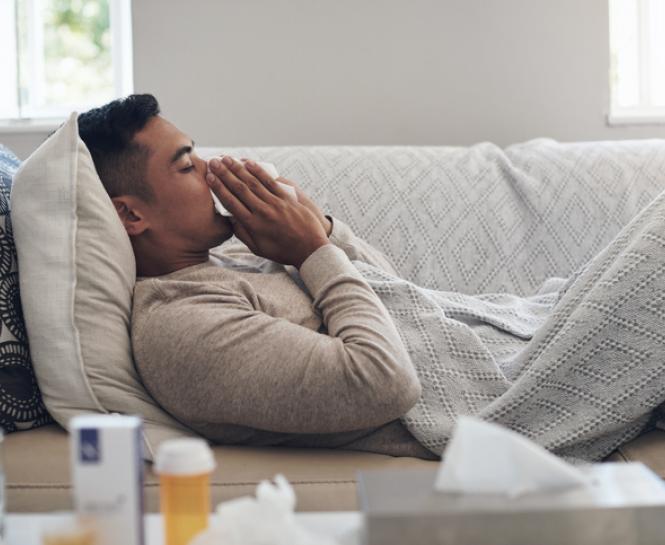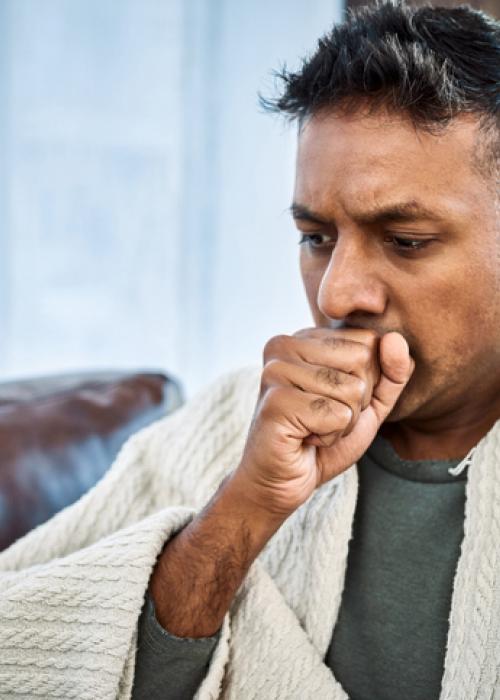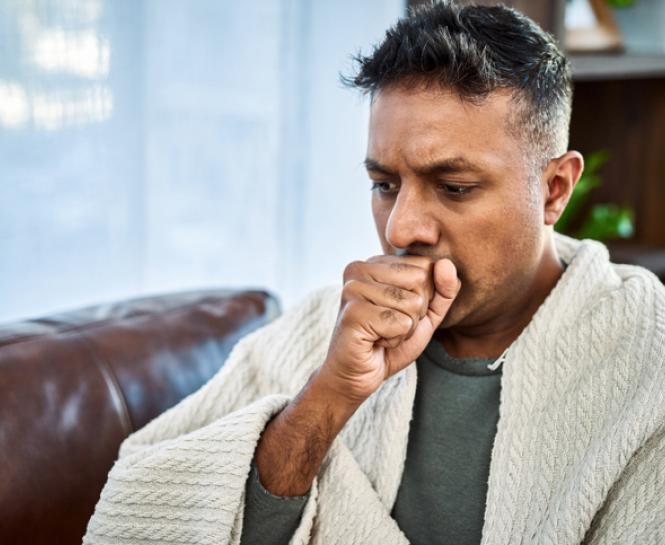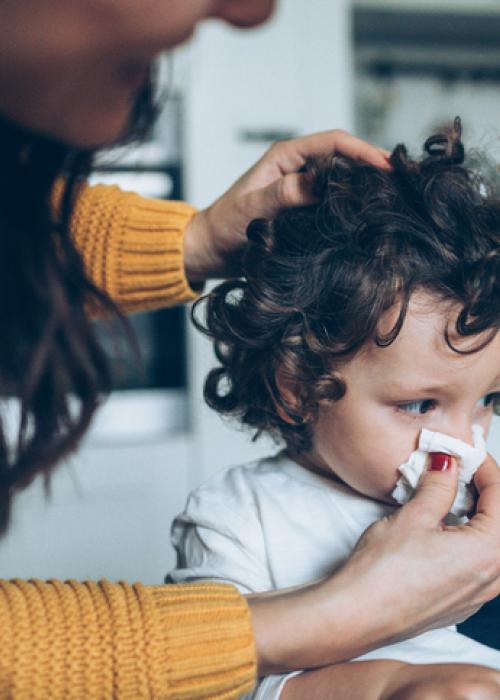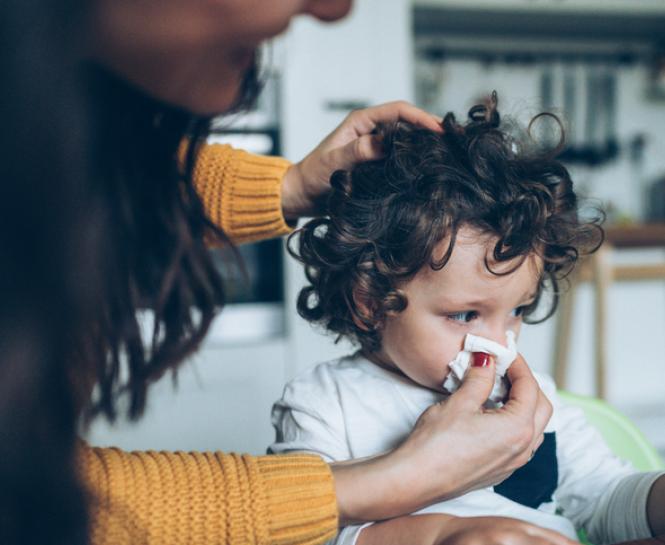“You should contact your doctor immediately if you have bronchitis to start treatment before symptoms worsen,” said Oosman Tariq, MD, Catholic Health Physician Partners Primary Care Physician.
Dr. Tariq noted that acute bronchitis can turn into pneumonia if not treated. Also, chronic bronchitis can pose significant health risks for patients with chronic obstructive pulmonary disease (COPD).
“Knowing your risk factors for bronchitis and how to reduce the likelihood of getting bronchitis is important, especially during colder seasons like fall and winter,” he said.
What is bronchitis?
Bronchitis is a swelling in the bronchial tubes that carry air to and from the lungs. There are two types of bronchitis:
- Acute bronchitis. Typically, it lasts about 10 days and then goes away, sometimes with a cough that lingers a bit longer.
- Chronic bronchitis. Typically, it lasts at least three months and comes and goes for at least two years. A person with chronic bronchitis may also have chronic obstructive pulmonary disease (COPD).
What causes bronchitis?
A cold or other respiratory infection most often causes acute bronchitis. Smoking most often causes chronic bronchitis. Other less common causes of chronic bronchitis include air pollution, secondhand smoke and toxic workplace dust and gasses.
What are the risk factors for bronchitis?
The following factors can increase your risk of developing bronchitis:
- Exposure to certain substances at your workplace, such as grains, textiles or chemical fumes
- Having a compromised immune system due to a recent or chronic illness
- Having chronic gastric reflux (heartburn)
- Smoking, vaping or being exposed to secondhand smoke
What are the symptoms of bronchitis?
Symptoms of acute and chronic bronchitis may include:
- Chest discomfort or pain
- Cough—especially with mucus that is clear, white, yellowish-gray or green
- Fatigue
- Fever and chills
- Shortness of breath
Other symptoms of acute bronchitis may feel similar to a cold, such as body aches or a mild headache.
When should I see my doctor for bronchitis?
You should see your primary care physician (PCP) if your cough:
- Causes wheezing or shortness of breath
- Comes with a fever higher than 100.4 F
- Lasts longer than three weeks
- Prevents you from sleeping
- Produces mucus that is thick, colored (yellow, gray or green) or bloody
How is bronchitis diagnosed?
During a physical exam, your physician will listen to your lungs while you breathe. They will also ask about your symptoms. One or more of the following tests can help them diagnose bronchitis:
- Chest X-ray. It will show if you have pneumonia, which can be a bronchitis complication.
- Pulmonary function test. Monitors the amount of air the lungs hold and how quickly you can blow air out of your lungs.
- Sputum (mucus) test. Analyzes coughed-up mucus to determine if bacteria caused your infection.
How is bronchitis treated?
Although acute bronchitis does not always require treatment, you should still contact your doctor if you have a history of bronchitis or other preexisting medical conditions and if your symptoms are worsening. Your physician may prescribe an antibiotic.
Treatment for chronic bronchitis also depends on your symptoms and other health conditions. Your physician may prescribe one or a combination of different medications:
- Cough medicine to control your cough and help you rest
- Inhaler to help you breathe better—especially if you have allergies, asthma or COPD
If you have chronic bronchitis, your physician may recommend pulmonary rehabilitation. During these sessions, trained experts help you learn breathing techniques and how to participate in physical activity safely. They may also suggest you join a smoking cessation program if you are still smoking.
Can I reduce my risk of developing bronchitis?
Tips to reduce your risk of developing bronchitis include:
- Avoid cigarette smoking, vaping or breathing secondhand smoke.
- Get your flu shot each year.
- Wash your hands regularly.
- Wear a mask around toxic substances or in large crowds of people.
Find Care at Catholic Health
Call 866-MY-LI-DOC (866-695-4362) to find a Catholic Health physician near you.



